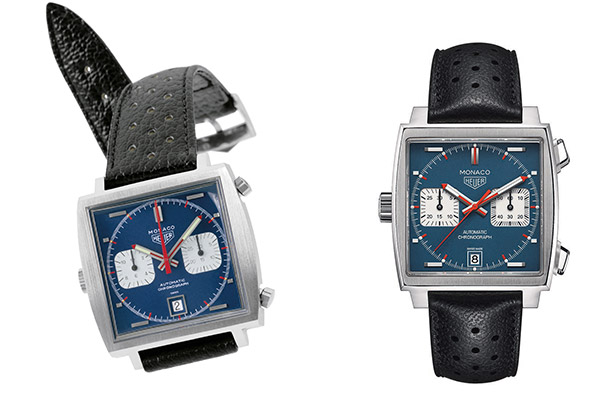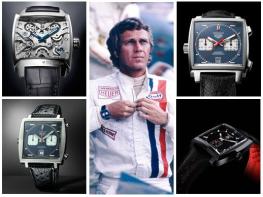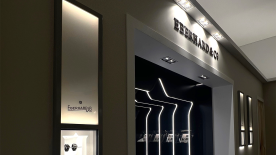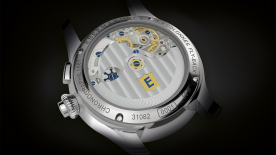In 1969 the world of Swiss watchmaking experienced a mini-revolution: it was the first time anyone had seen a chronograph with a square case, and it was waterproof to boot. Its name was the Heuer Monaco. With its big square case, uncompromising corners, metallic blue dial, bright red direct-drive seconds hand and domed plastic crystal, not forgetting its famous left-mounted crown, this bold design shattered the aesthetic codes of traditional watchmaking. At its heart beat the Chronomatic Calibre 11, the first automatic chronograph movement to go on sale in the history of watchmaking.
TAG Heuer Monaco 1969: the birth of an icon
The Heuer Monaco didn’t really take off until one year after its launch, when Steve McQueen, one of the most charismatic actors of the time, decided to wear it while shooting the film Le Mans, which came out in 1971. On the star’s wrist the Monaco rapidly gained iconic status and joined the pantheon of legendary sports watches. Over the years TAG Heuer has continued to bring out new versions. The timepiece would see its case size reduced, its sharpest angles reworked, the original plexiglas crystal replaced by sapphire, its movement updated and the historic Calibre 11 replaced. Through these variants the Monaco has nevertheless remained faithful to the original 1969 model, continuing to exude a passion for motor racing and TAG Heuer’s avant-garde spirit.
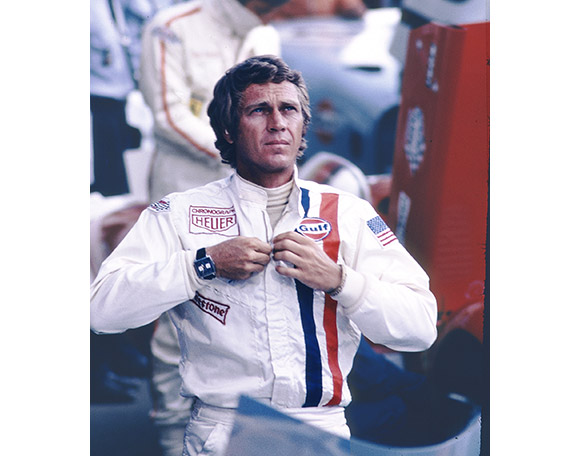
The Monaco and its movements
A number of different Swiss Made calibres drive the current Monaco models, but three are worthy of note. The calibre 6 is a three-hand automatic movement providing hour, minute, small seconds and windowed calendar functions. The Calibre 12, an automatic chronograph movement, can measure times up to 12 hours with a precision of 1/8 second. It is simple to use and has a number of functions that are useful for both high-performance sport and everyday life, such as measuring both elapsed time and split time. The latest calibre to date is the number 11. Based on the Sellita SW300 with a Dubois-Dépraz chronograph module, this movement drives the Monaco Chronograph Calibre 11, a reworking of the TAG Heuer Monaco of 1969, unveiled just a few months ago.
Monaco V4: a revolutionary concept
The next step in the evolution of the iconic Monaco, the V4 concept watch, created a stir when it was unveiled at Baselworld in 2004. The V4 title of the model comes from the V-shaped plate that carries the four barrels, which are series-mounted on ball-bearings. Set at a 13° angle, they resemble the cylinders of a Formula 1 car engine. With its belt drive and linear mass that moves along a straight rail rather than rotating in the usual way, the Monaco V4 also symbolises TAG Heuer’s commitment to innovation. After five years’ research, the engineers’ drawings were finally translated into a finished product. In 2009, for its 150th anniversary, TAG Heuer unveiled the Monaco V4, which is available today in a number of versions.
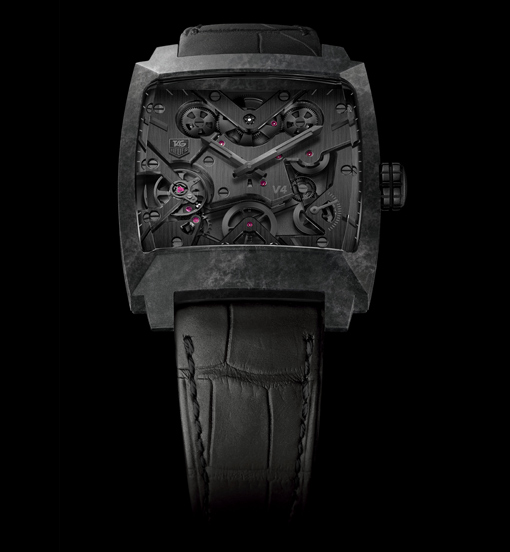
Monaco Chronograph Calibre 11: a legend reborn
At the end of 2015 TAG Heuer presented a brand new interpretation of its legendary square automatic chronograph with metallic blue dial. Faithfully inspired by the watch worn by Steve McQueen in the 1971 film Le Mans, the Monaco Chronograph Calibre 11 is a direct descendant of the 1969 original: 39 mm square case, petrol blue dial with two white counters, vintage Heuer logo and crown at 9 o’clock. The new interpretation differs from its predecessor in that it sports rectangular chronograph pushers and a running seconds sub-dial at 3 o’clock.
